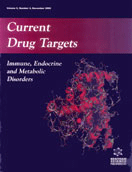Abstract
Estrogen receptors (ERα and ERβ) mediate the effects of 17β-estradiol (E2) and account for E2 role on growth, development, and homeostasis maintenance in different tissues and organs. ERα and ERβ function as ligand-dependent transcription factors which directly bind to specific estrogen responsive element (ERE) present into DNA and, in turn, regulate the transcription of E2-sensitive genes. In addition, ERα and ERβ, without direct binding to DNA, regulate transcription indirectly by binding to other transcription factors activating or inactivating the transcription of E2- dependent-ERE-devoid genes. Along with these two E2 mechanisms, it has been recently uncovered that a third signalling pathway, involving cytoplasmic proteins and rapid membrane-initiated responses, serves largely for mitogenic E2-induced effects. The commitment of ERβ in these rapid E2-induced effects is openly debated. This review will focus and summarize the latest findings regarding the multiple E2 molecular mechanisms and underlines the development of our understanding of anti-cancer drugs acting as ER signalling modulators.
Keywords: estradiol, estrogen receptors, signalling pathways, selective estrogen receptor modulators, estrogen-related
 1
1


















